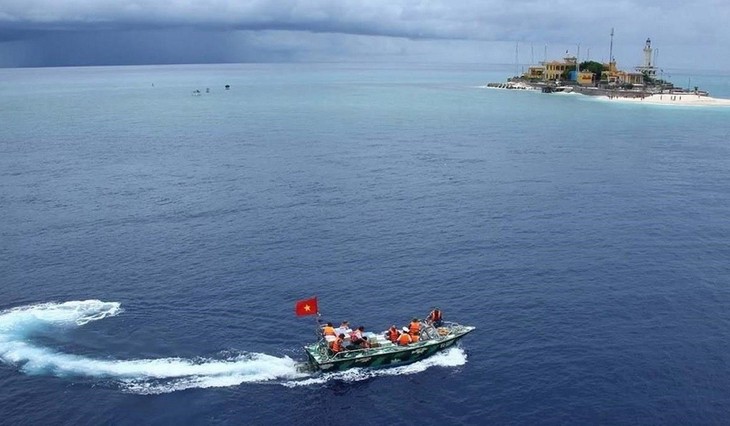(VOVWORLD) - The 1982 United Nations Convention on the Law of the Sea (UNCLOS) and the ruling of the Permanent Court of Arbitration (PCA) on the East Sea issue were highlighted at a webinar held by the Asia-Africa Institute at the Hamburg University of Germany on Friday.
 PCA’s ruling is considered a significant legal basis in the settlement of the East Sea issue (Photo: VNA) PCA’s ruling is considered a significant legal basis in the settlement of the East Sea issue (Photo: VNA) |
The fourth workshop on the East Sea, internationally known as the South China Sea, was organized on the occasion of the five years since the PCA, based in The Hague (the Netherlands), issued a verdict relevant to the waters on July 12, 2016.
Prof. Thomas Engelbert from the Asia - Africa Institute said despite the PCA’s ruling, the East Sea situation remains tense with repeated actions violating international laws. Meanwhile, negotiation process on the Code of Conduct between the ASEAN and China hasn’t finished. Engelbert said early this year, Japan sent a diplomatic note to the UN for the rejection of China’s territorial claims in the East Sea. Many countries, including the US, Britain, France, Germany, Australia, Indonesia, the Philippines, and Vietnam made statements that the East Sea should be safe with freedom of navigation. The international community valued compliance with international law and protested any action what violates UNCLOS and the refusal to adhere to the PCA ruling, according to Prof. Engelbert.
On July 12, 2016, the Permanent Court of Arbitration in the Hague announced its ruling in the Philippines case against China’s nine-dash line claims of historical rights in the East Sea.
The Permanent Court of Arbitration, which was constituted under Annex VII to the UN Convention on the Law of the Sea in The Hague, Netherlands, rejected China’s territorial claims in the East Sea known as the 9-dash line. It was a historic ruling on current East Sea disputes and set a precedent for international maritime law.